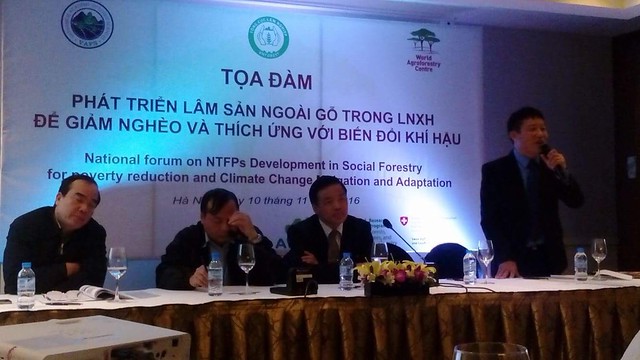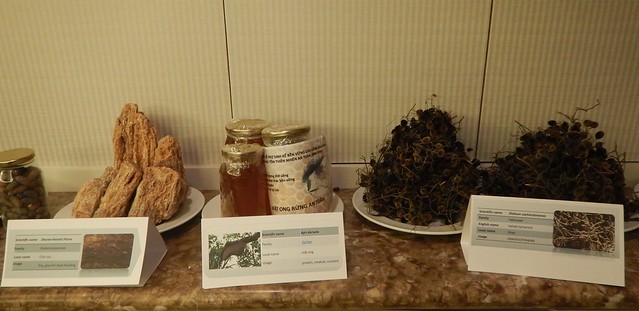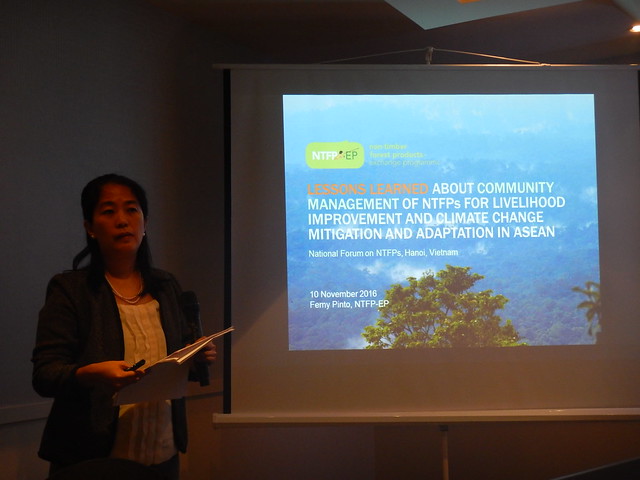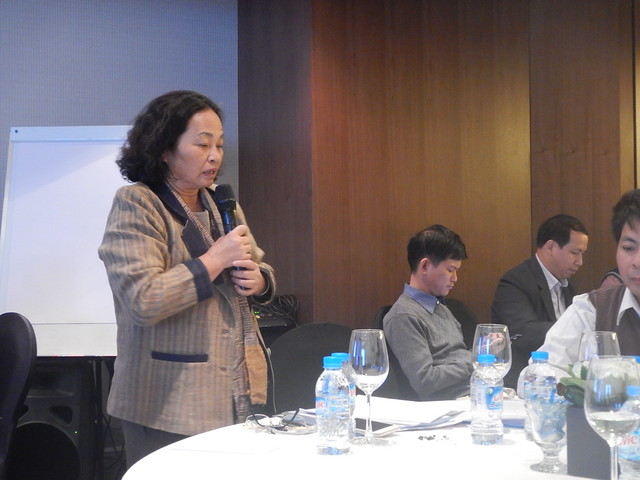HANOI, Vietnam – The potential roles of non-timber forest products (NTFPs) in climate change adaptation and mitigation have been part of on-going discussion not just ASEAN region. In Vietnam for example. NTFPs such as bambusa (bamboo) and pine resin are key to the livelihoods of many forest-dependent communities. Based on the recommendations of the Ministry of Agriculture and Rural Development of Vietnam, the Department of Forest Development/Department of Forest Production Management (VNFOREST) in collaboration with the World Agroforestry Centre (ICRAF) Vietnam have organized the National NTFPs Forum in Hanoi last 10 November 2016.
The “National Forum on NTFPs Development in Social Forestry for Poverty Reduction and Climate Change Adaptation and Mitigation” was organized to elucidate issues, challenges, and lessons around NTFP development and conservation. NTFP-EP and the Southern Institute of Ecology (SIE) shared to the forum evidences from case studies highlighting the importance of NTFPs in protecting the livelihood and income of local communities depending on forests not just in Vietnam but also in neighboring countries like the Philippines and Indonesia.
Nguyen Duc To Luu of PanNature Vietnam presented results from the analysis of the cardamom value chain in the districts like Xin Man, where they faced challenges in the unsustainable forest cultivation of resources and the limited access to NTFPs due to existing regulations. The case recognized that key policies surrounding the development and conservation of NTFPs have yet to be strengthened at the national level to establish stronger linkages between stakeholders and some related policies that ensure sustainability in terms of profit and resource management.

By Autopilot – Own work, CC BY-SA 3.0, Link
This pivotal opportunity to mainstream NTFPs into the country’s forestry sustainability agenda could prove to be advantageous not just for resource management, but also for the recognition of ethnic rights in Vietnam. Madame Truong of Centre for Sustainable Development in Mountainous Areas (CSDM) that in promoting sustainable management of natural resources, it is important to recognize the duality of indigenous knowledge and modern techniques. She adds that by providing support to the communities and increasing their capacity, the premise of poverty alleviation could be a contingent strategy towards climate change adaptation and mitigation.








